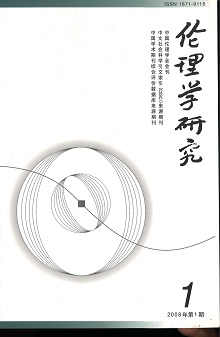|
|
Harmonious Society and its Political and Ethical Construction: a People-Oriented Perspective
JIANG Xue-lian
2008(1):
73-78.
Chinese Scholars from different fields have been discussing the Harmonious Society warmly in recent years.With the deepening of the study, the ways of constructing and building the Harmonious Society are undoubtedly the most realistic and important.As a state of society instead of a form of society,Harmonious Society,in its essence,consists in the people-oriented harmony of subjects. According to the specific connotation and characteristics of Socialist Harmonious Society, this article holds that the many approaches to the construction of a harmonious society should not only need political construction and institutional guarantee but also relevant civil ethics and construction of civil morality in their modern sense.A civil society establishes such basic value notions in modern society as democracy,law system,freedom,equality,and justice in the form of institutions, and it insures that all citizens can benefit from these notions,thus providing institutional guarantee for the establishment of a real harmonious society.Civil ethics and civil morality,as the idea form,spiritual implication,cultural token and value justification of a civil society,reveal the essential characteristics and requirements of civil society,and guide the construction of civil society in terms of values and methodology,thus providing a sound foundation and backing for the construction of a harmonious society.
|



